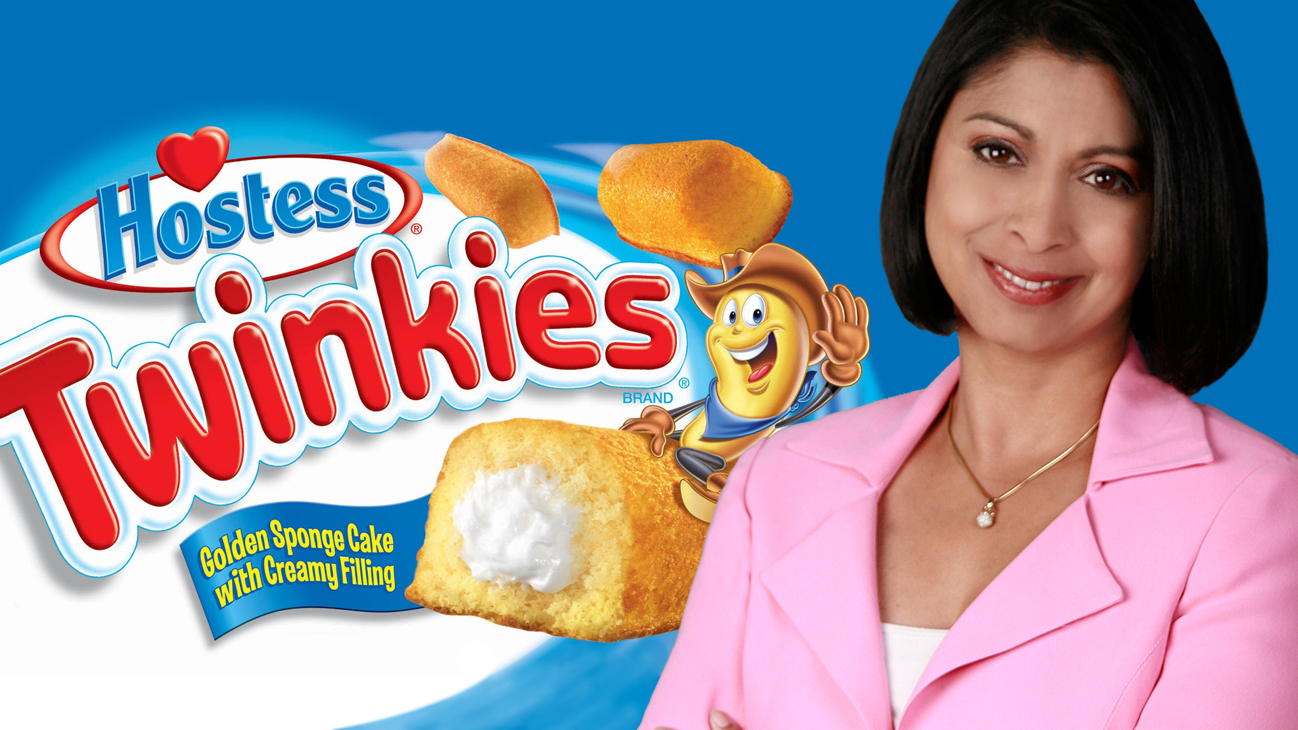The world we live in is morphing into a new one as we speak—that’s a scary prospect for many, but after a presentation by Linda Nazareth, you will feel like you have a handle on the future. The Senior Fellow for Economics and Population Change at policy think-tank The Macdonald-Laurier Institute, Linda is an expert in demographic and economic trends. Her talks focus on what will happen—and what you need to think about to be on the right side of change. In her post below, Nazareth discusses some unexpected possible economic indicators that we should consider paying attention to:
Robots, joined by Gig Workers, are now making Twinkies, and they are doing such a good job that their parent company is going public. That’s a powerful statement about today’s manufacturing and economy, never mind our nutritional preferences.
Twinkies, those flaky, cream-filled snack cakes that are apparently beloved by many, have been a business news story several times over the past few years. Hostess, the company that makes them, has been around since 1919. Over the decades, it became a huge company that not only employed many unionized workers to the extent that that eventually had 372 separate bargaining contracts at one time. As this story from the Wall Street Journal details, the company ran into financial troubles in 2004 and ended up in bankruptcy court, nearly closing operations. Although the company rallied, troubles with union contracts sent it back there in 2012. It might have been the end of the line for the Twinkie.
The Twinkie rose again when the brand, along with the rest of Hostess’ snack food line, was purchased the following year by two investment firms, Metropolous & Co and Apollo Global Management. The company threw a bunch of money behind rebranding the product, with a huge amount of success apparently. Hostess reported revenues of $650 million for the year ended on May 31st of 2016, and according to the company has a gross margin of 43 percent. Earlier this month it was announced that Hostess would go public, allowing those who believe in Twinkies to actually buy shares in the company.
Thing is, although Twinkies do have a retro appeal, the business model behind them these days is very different from what it used to be. When Apollo and Metropolous set out to remake the company, they not only created new products (bread, a frozen-fried twinkie that will soon be released) they also poured about $100 million into investment. The number of bakeries used in manufacturing has been pared back, and larger ovens apparently mean more efficiency.
In reading the Hostess success story, however, two things really caught my eye. The first is that robots now pack Twinkies into boxes. That’s right, robots. For the most part, technology replaces workers in quite subtle ways. Word processing software and voice mail in one way or another did replace many secretaries, but that happened over time and was more about people not being hired than it was about anyone being fired and their job function taken over by machines. In this case, however, robots are doing exactly what human workers once did and getting Twinkies into boxes. That says a lot about the nature of manufacturing these days.
The other thing that stands out to me is that Hostess is now being sued by truck drivers in twelve states, saying that they are being called ‘contingent workers’ when they are actually (and would rather be) employees. To me, that one is perhaps even a more important trend than the Twinkie-packing-robots. Increasingly, workers are being shifted into the ‘Gig Economy’, a place where they get assignments rather than jobs. For top-tier professionals that can be an awesome thing that allows them to charge top dollar and set their own hours. For the truck drivers and others like them, it clearly means fewer benefits, less job security and probably a significantly lower income. Whether or not the drivers win their suit, the move to a new class of ‘Involuntary Gig Workers’ is a genie that has left the bottle.
At the end of the day, Hostess now employs just 1,200 people in its Kansas City factory, as compared to 19,000 at its peak. That is actually 1,200 more than would have been employed had the brand not be saved, which is a good thing. The stock offering this Fall is likely to get a lot of interest and potentially could be a bonanza for investors, and the infusion of capital is likely to allow the company to expand, which is also an economic positive.
You cannot get away from it though: Hostess is but one example of a company that is using robots and Gig workers to move forward. In an efficiency sense that is great, but now is also the time to take note of the trends and ask what they will mean in a broader economic and social context.
Twinkies, it would seem, are an economic indicator and one that we would do well to follow.

